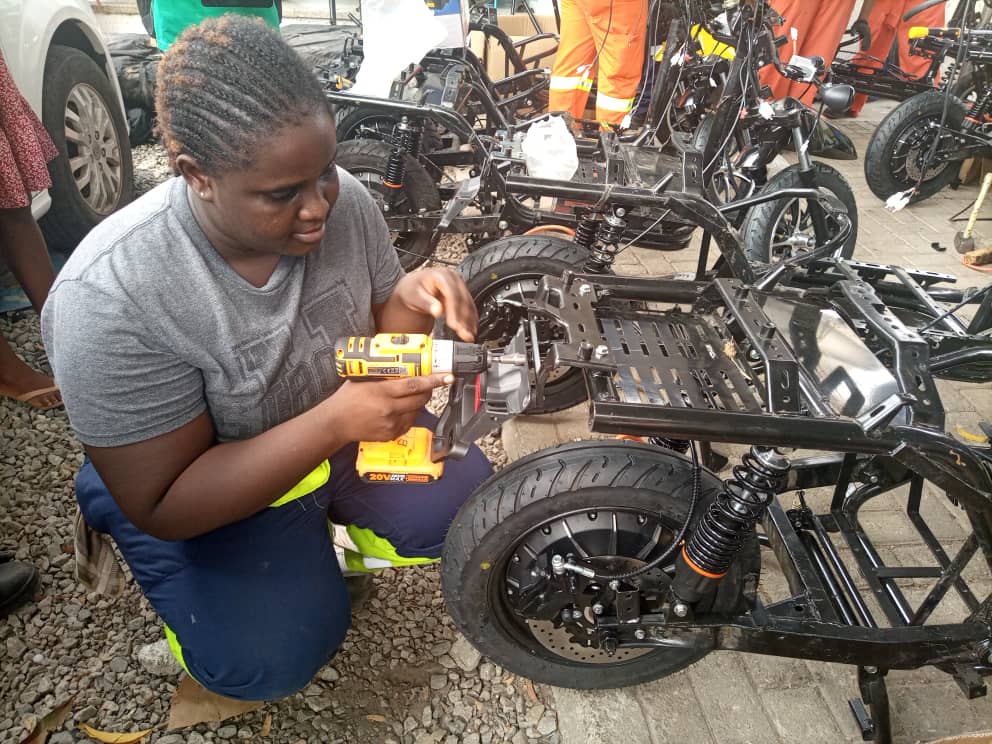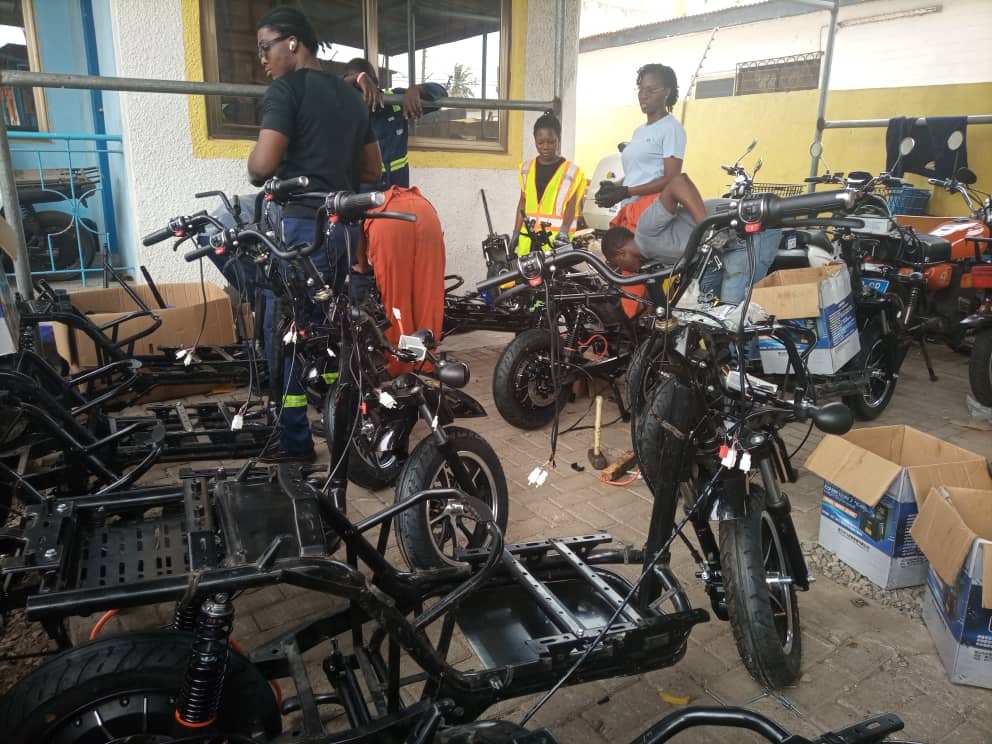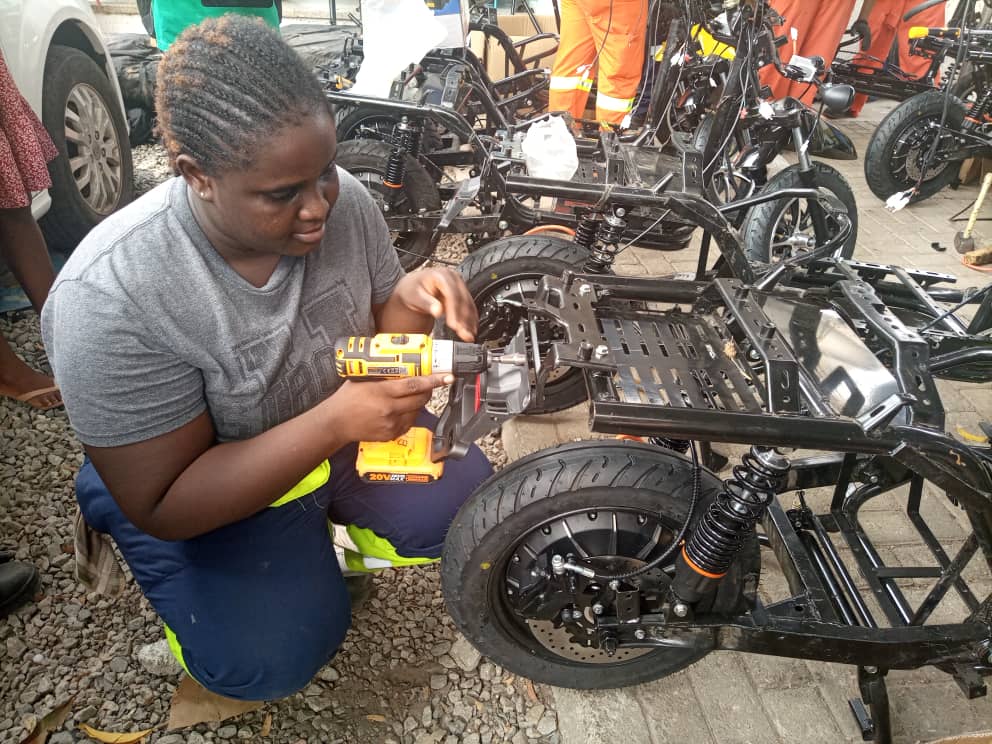Ghana is experiencing a revolution in the automotive and photovoltaic sector. Solar taxis are gaining ground in this West African country. And women count for a lot in this revolution.
Photo credit: Fulbert ADJIMEHOSSOU
In her blue mechanic’s jumpsuit, Bénédicta Agbo-Dan is very quickly mistaken for a man. This February 14, 2023 in Accra, the young Ghanaian woman who is doing well in French is spending her Valentine’s Day at the bedside of her love: the electric vehicle.
In front of the trainees of the Climate Change Journalism Fellowship (CCJF), this employee of the company Solar Taxi opens the hood of one of the vehicles and praises all the marvels that the solar taxi represents in her opinion.
“When you look at this vehicle, you have the impression that it is like those who consume gasoline. But you have to see closely. All the parts are not the same, and the operation is very different,” warns Bénédicta Agbo-Dan.
For more than half an hour, Bénédicta Agbo-Dan explains the entire operating mechanism of this vehicle. “The vehicle does not consume fuel, so it does not pollute. It’s a chance to have a healthy environment, in addition to not spending so much on gas consumption. It’s very economical and ecological,” she says.
Read also : In Ghana, a wall against plastic pollution
Women, at the heart of Solar Taxi
Bénédicta Agbo-Dan is not the only woman involved in this company. Through the Female Engineering Academy initiative, women are trained to assemble solar vehicles. Solar Taxi Female Driver Training Academy therefore trains women in the driving and maintenance of electric vehicles.

Photo: Fulbert ADJIMEHOSSOU
Thus, in the assembly units, the fairer sex is in the front line. “We have 96 employees, 90% of whom are women,” says Givens Manu, Operations Manager at Solar Taxi. Young female engineering graduates are trying to overcome gender barriers in Ghana’s male-dominated automotive industry.
Solar Taxi empowers women in a society that places limits on what women can achieve. “Solar Taxi works for the empowerment of the fairer sex,” adds Givens Manu.

Photo credit: Fulbert ADJIMEHOSSOU
A revolutionary spirit
The innovation took shape in 2018 and was driven by Kumasi Hive, led by George Appiah, a technopreneur and technology policy expert in Africa. Trained in Electrical/Electronics Engineering and Renewable Energy, George has focused on technology adoption to solve critical challenges and create jobs in Africa.
Solar Taxi produced two-wheeled taxis before introducing four-wheeled cars to the market two years later. This initiative responds sustainably to daily transport needs. This reduces the number of vehicles emitting greenhouse gases for sustainable transport.

The company also focuses on the production of lithium-ion batteries to meet the needs of electric vehicle users in Africa and beyond through research and development.
Read also : Carbon market: How Ghana benefits from it
